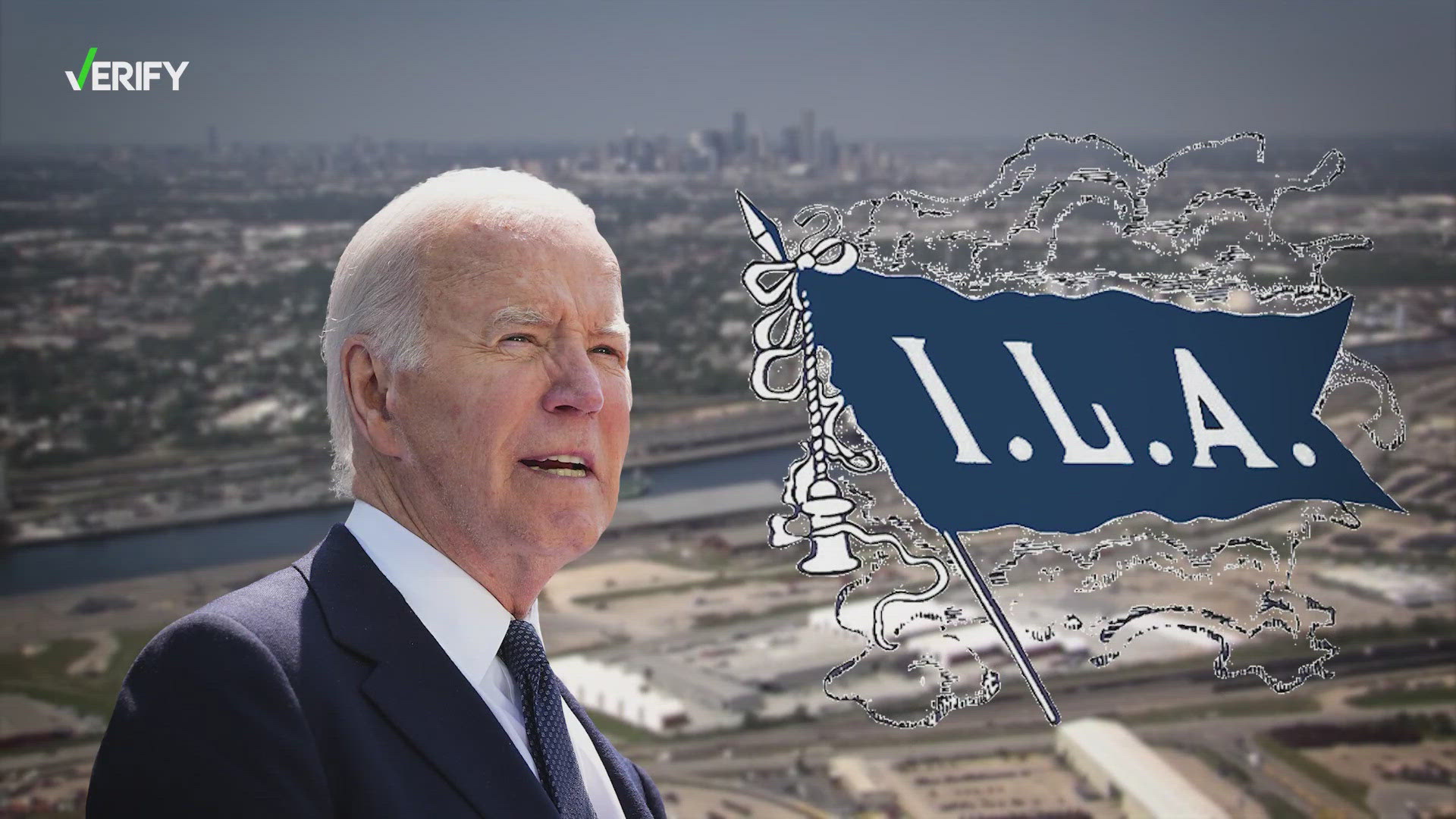HOUSTON — The International Longshoreman's Association (ILA) has the backing of the Biden Administration to as they negotiate a new contract with the U.S. Maritime Alliance (USMX). The USMX represents the ports and employers. The affected port operations along the Gulf and East coasts are not a part of the negotiations.
The dockworkers' strike has a national impact, as products and supplies are held up or rerouted to western U.S. ports not a part of the strike.
THE QUESTION
Viewer Question - Can the president stop the dockworkers' strike?
THE SOURCES
Taft-Hartley Act of 1947
Harry S. Truman Library and Museum
Congressional Research Service
Library of Congress
National Labor Relations Board
New York Times Archive
THE ANSWER
Yes, The president has the power to stop the dockworkers' strike, but President Joe Biden says he does not plan to intervene.
WHAT WE FOUND
The U.S. has a long history of labor disputes, some of which have led to deadly clashes. One incident came to be known as the "The Ludlow Massacre". The Colorado National Guard and guards from the Colorado Fuel and Iron Company went into the tent colony of coal workers on strike. The attack resulted in 21 deaths and led to a congressional investigation.
Leading up to World War II there were several labor disputes, but during the war, workers held off going on strike. Following the war's conclusion across several industries workers looked to improve wages, and working conditions by going on strike. In 1947, U.S. Congress passed the Taft-Hartley Act, which shifted power away from unions and allowed the government to intervene in labor disputes that have national implications. Then-President Harry S. Truman according to a letter obtained from the Truman Presidential Library and Museum spells out why Truman at the time issued a veto to the Taft-Hartley Act. In the letter, Truman says, "I find that this bill is completely contrary to that national policy of economic freedom. It would require the Government, in effect, to become an unwanted participant at every bargaining table." Despite the protest from President Truman, Congress overrode the veto allowing the law to go into effect.
According to an article published by the New York Times in 1961, Truman would go on to use the presidential powers granted in the Taft-Hartley Act ten times throughout his presidency. The KHOU 11 Verify Team found Presidents: Dwight D. Eisenhower, John F. Kennedy, Richard Nixon, Jimmy Carter, and George W. Bush invoked the power of the legislation a total of 37 times.
The Congressional Research Service says in an Oct. 2, 2023 publication that Taft-Hartley authorizes the President to get involved in labor disputes on these conditions.
- There is "a threatened or actual strike or lockout"
- The strike or lockout affects all or a substantial part of an industry engaged in “trade, commerce, transportation, transmission, or communication among the several States or with foreign nations;” and
- The strike or lockout, if permitted to occur or continue, would “imperil the national health or safety.”
If the President determines the labor dispute meets these conditions, the determination triggers options that include getting a federal court involved to possibly return the workers on strike back to work.

